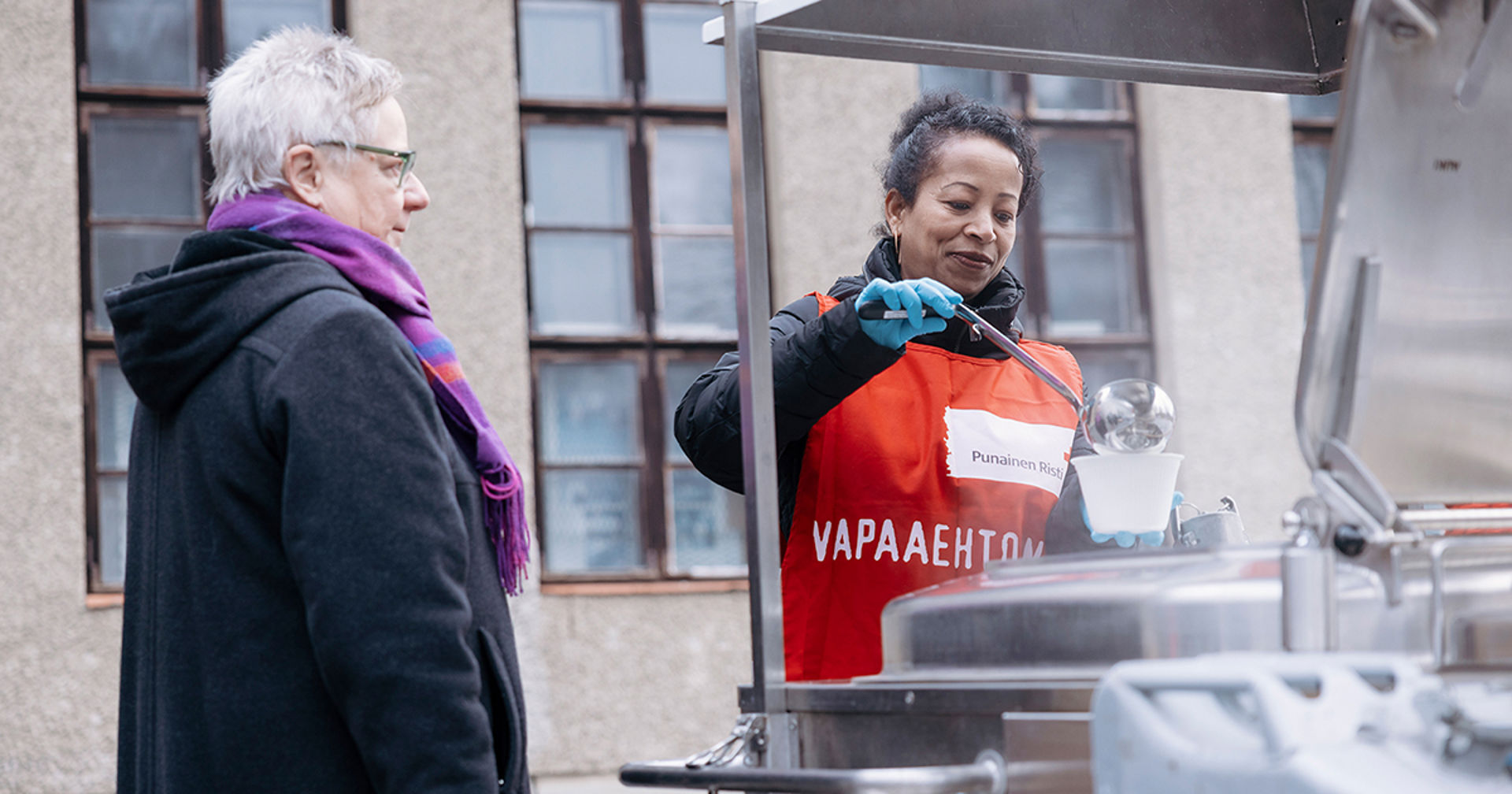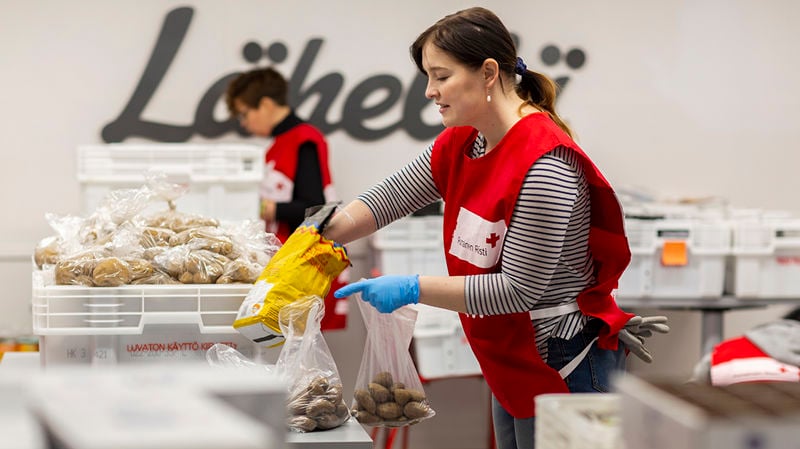People’s desperation reflected in the responses to the Finnish Red Cross’s food aid survey

The survey by the Red Cross for people seeking out food aid shows that many students, families with children and unemployed people have to continuously cut back on mandatory expenses, such as prescription medicines. The cuts to social security have increased the number of food aid applicants, and food aid is essential to many for surviving their day-to-day life.
The cuts to social security made over the year are reflected in the food aid operations of the Finnish Red Cross. Of the people responding to the Red Cross survey, 59 per cent stated that the cuts to social security increased their visits to food aid. Especially unemployed or furloughed people, students and families with children said that the cuts had increased their need to seek out food aid.
“Poverty touches more and more people in Finland, extensively impacting the well-being of population. Poverty experienced in childhood, for example, impacts also later life, such as a person’s studies and health. It is essential to pay attention to the varied human, social and financial factors affecting the need for food aid,” says Leena Suurpää, the well-being and NGO development director at the Finnish Red Cross.
Many now applying for food aid for the first time
A total of 36 per cent of the respondents to the food aid survey said that they had now applied for food aid for the first time, or had received food aid for the first time during the past six months. Families with children, students and unemployed or furloughed people are the most pronounced groups among those applying for food aid for the first time.
“The results of this survey are alarming. As a consequence of the rising cost of living and the cuts to social security, many of those who used to barely scrape by are now about to be in need of help. It can be expected that more and more people need to seek out food aid as the consequences of the cuts and the financial difficulties of people turn to reality. The current cuts to social security will have a high price for society, and it should not fall onto the non-governmental organisations alone to fix the situation,” says Eveliina Yli-Rahnasto, the Finnish Red Cross’s food aid planning officer.
Mandatory expenses have to be cut
Up to 43 per cent of the respondents had to occasionally or regularly choose between their mandatory expenses, such as medication prescribed to them or their family members, food or bills.
“The desperation of people needing help can be seen in the open questions. This is highlighted in responses stating that without food aid, the family would be facing enforcement, for example. Skipping medication, on the other hand, may have major impacts on health,” says Yli-Rahnasto.
Of all the respondents, 41 per cent say that food aid is essential to their or their family’s survival.
“Behind these figures, we have people attempting to survive from one day to next and who are burdened by constant worry about their ability to cope financially. Workers from different cities and towns say that adolescents and even children of primary school age visit food aid alone, without an adult accompanying them, and they are visibly hungry,” Yli-Rahnasto says.
The survey responses are a proof that receiving food aid alleviates some of the stress related to coping with day-to-day life and increases the sense of safety. Food aid plays a crucial role in enhancing participation, a sense of community and well-being. Food aid is considered a place where people can meet others in the same position. A total of 71 per cent of the respondents stated that food aid has improved their own or their family’s well-being.
The Finnish Red Cross’s survey (pdf) received responses from 700 food aid applicants between May and September 2024. The survey was conducted as a questionnaire form.
